Question And Answer
Publications
Articles, publications, books, tools and multimedia features from the U.S. Institute of Peace provide the latest news, analysis, research findings, practitioner guides and reports, all related to the conflict zones and issues that are at the center of the Institute’s work to prevent and reduce violent conflict.

Leanne Erdberg on Violent Extremist Disengagement and Reconciliation
While some will face criminal trial, many of those who traveled to live with ISIS but have disavowed its ideology will have to reintegrate into their communities. “We need to encourage a way to talk about them so that they can form new bonds with their communities,” says Leanne Erdberg. “Language has a very important role to play.”
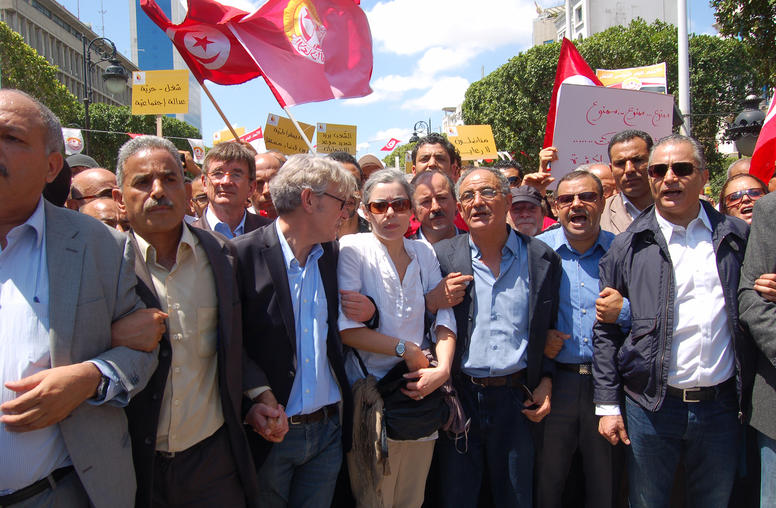
How Civil Society Can Help Prevent Violence and Extremism
Editor’s Note: Congress charged the U.S. Institute of Peace with convening the Task Force on Extremism in Fragile States. Following the public launch of the Task Force’s final report, four groups of experts came together to discuss how to implement the report’s recommendations. This four-part series will discuss the findings from these strategy sessions. Part one summarizes expert discussion on how civil society actors are preventing violent extremism and building resilience in their communities and practical ways the U.S. and other international actors can more effectively interact with civil society to bolster its role in prevention.

Leanne Erdberg on the Psychology Behind Terrorism
Nearly 20 years after 9/11, determining the profile of someone who is going to join a terrorist group remains a deeply challenging effort. For too long we have looked at simple explanations— like poverty or lack of education—for why people join violent movements. Erdberg discusses a new project to investigate the psychology and neuroscience that motivates people to resort to extremism.
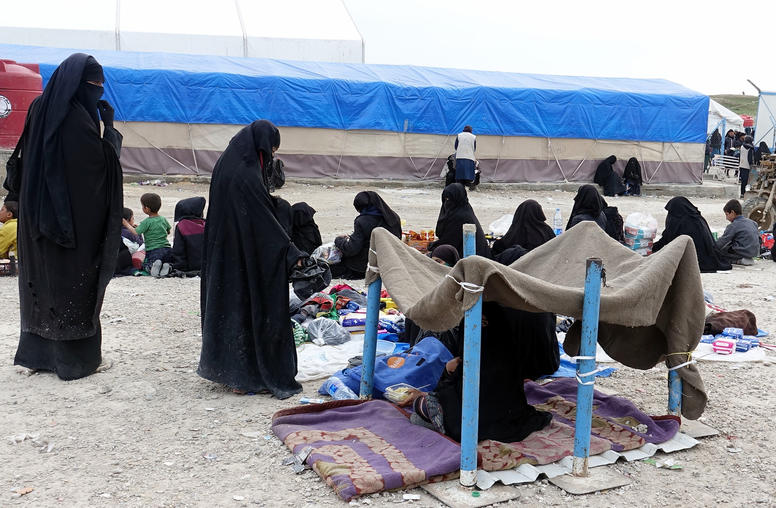
A Visit to Post-ISIS Syria: Human Crises Pose Risk
After losing its last territory in Syria on March 23, 2019, the Islamic State quickly reclaimed global attention with the Easter bombings in Sri Lanka on April 21 and a video tape of its reclusive leader, Abu Bakr al-Baghdadi, on April 29. The jihadi movement is now shifting focus to its ISIS branches, or “provinces,” in Africa, Asia and Europe. Baghdadi signaled ISIS’s expansion by formally embracing two Sunni extremist groups in Mali and Burkina Faso. But the Islamic State’s human core—more than 100,000 fighters and their families, including children—remains clustered in the rubble of its former “caliphate” in both Syria and Iraq. In Syria, they are detained in makeshift prisons, a hospital and refugee-style camps in the desert of northeastern Syria. USIP Senior Fellow Robin Wright made a rare tour of northeastern Syria to interview men and women who were part of the ISIS caliphate and to assess the risks posed by the post-caliphate crisis.
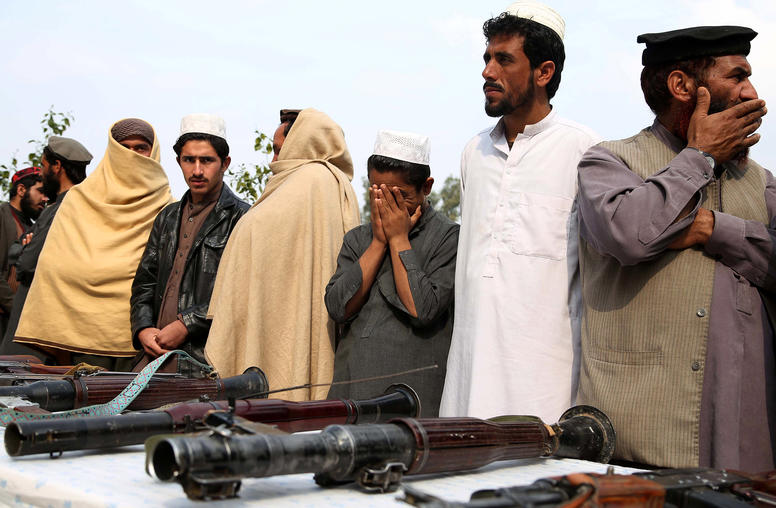
Options for Reintegrating Taliban Fighters in an Afghan Peace Process
A central issue for Afghanistan in achieving stability is making long-lasting peace with the Taliban. The success of any such agreement will depend in large part on whether Taliban commanders and fighters can assume new roles in Afghan politics, the security forces, or civilian life. This report explores that question, drawing on lessons from how similar situations unfolded in Burundi, Tajikistan, and Nepal.
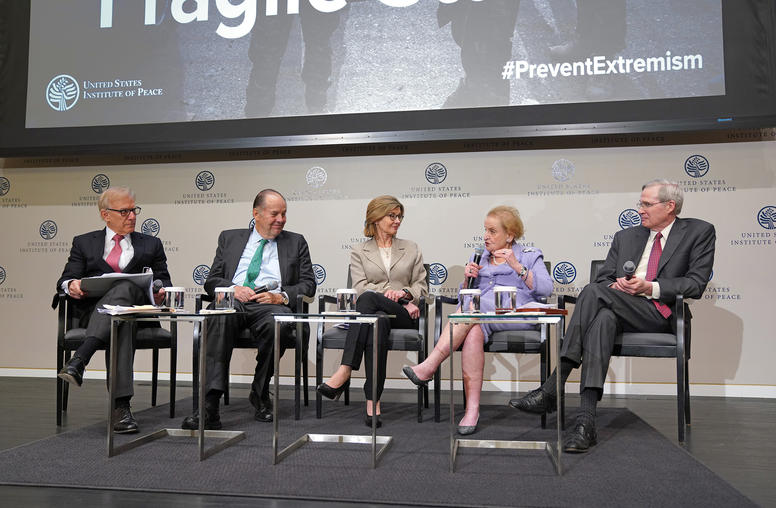
Fragile States and Violent Extremism: New Ideas for a Policy of Prevention
On April 21, suicide bombers in Sri Lanka reminded the world that the end of the Islamic State’s “caliphate” by no means marked the defeat of violent extremism. Indeed, despite trillions of dollars spent and tens of thousands of lives lost, terrorism is spreading. The urgency of checking the ideology behind terrorism, particularly where the ground for it is most fertile, has never been greater, said members of the Task Force on Extremism in Fragile States this week at the U.S. Institute of Peace.
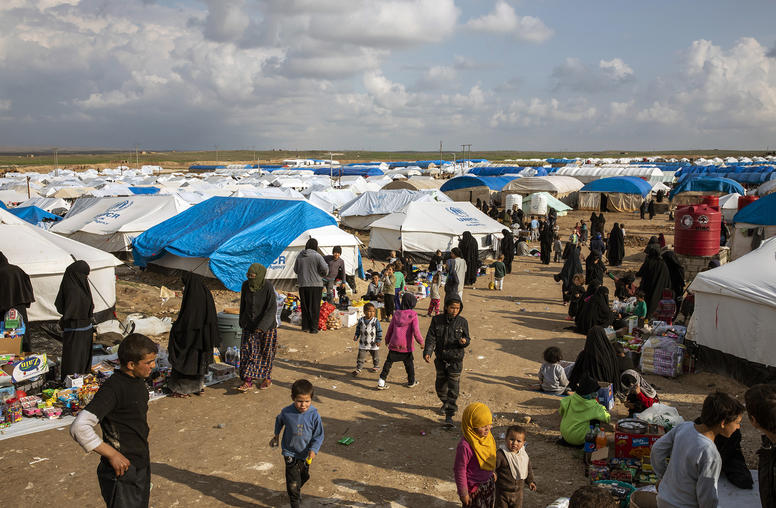
To Truly Defeat ISIS, Describe its Returnees as ‘People’
More than 100 countries, from Kosovo to Indonesia to Tunisia, face the security challenge of what to do with their citizens who traveled to join the so-called Islamic State. In dealing with perhaps tens of thousands of former ISIS participants—more than 9,000 in Syria’s Al Hol camp alone—simplistic solutions are at best inadequate and naïve, and at worst counterproductive and irresponsible. These include notions of indefinitely detaining or abandoning these populations in makeshift camps, or stripping their citizenship en masse. While many can be returned home to face trial, prosecution will be impossible for others. Thousands...

Nancy Lindborg on Iraq Rebuilding After ISIS
Following her trip to Iraq, Nancy Lindborg discusses the country’s efforts to rebuild after ISIS. “They’ve [ISIS] been deprived of their territory … rebuilding is under way. But, there is very much a sense that the ISIS ideology is alive and well and there are a lot of concerns overall about security,” says Lindborg. “There has been important progress, but it’s very precarious and completely reversible.”
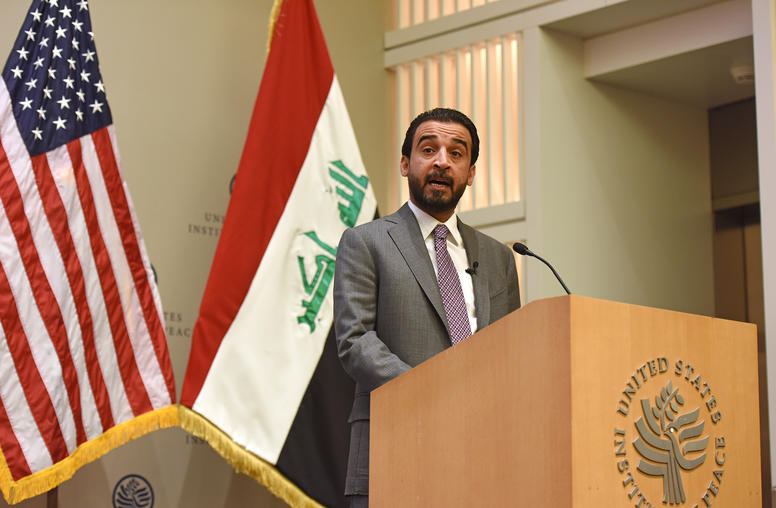
Iraq’s Leading Lawmaker Warns Aid Needed to Finish Off ISIS
Iraq is beginning to stabilize after its military victory against ISIS, but international assistance—without political meddling—remains badly needed to rebuild its economy and social fabric, the speaker of Iraq’s parliament, Mohamed al-Halbousi, said.
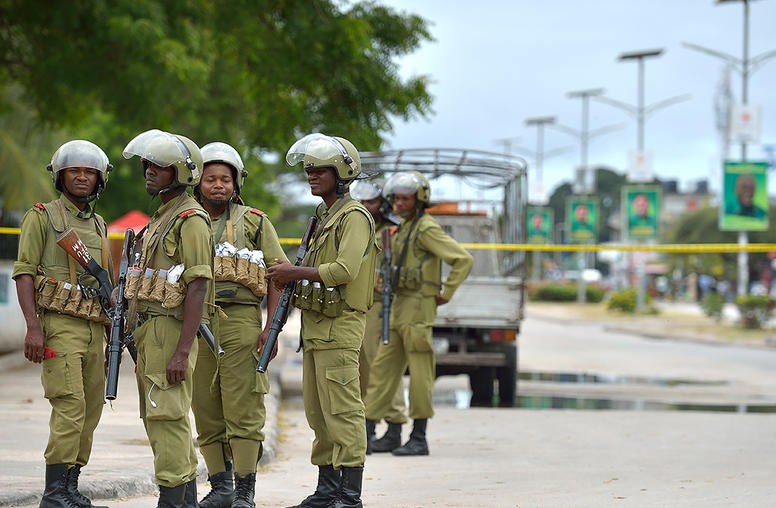
Violent Extremism and Community Policing in Tanzania
After the 1998 bombing of the U.S. embassies in Dar es Salaam and Nairobi and the increasing presence of al-Shabaab in nearby countries, Tanzania turned to community policing as a way of responding to the threat of violent extremism. But is it having the desired outcome? This new report, based on workshops and interviews with police, community leaders, and others, examines the challenges and potential of community policing in addressing Tanzania’s public safety and security concerns.